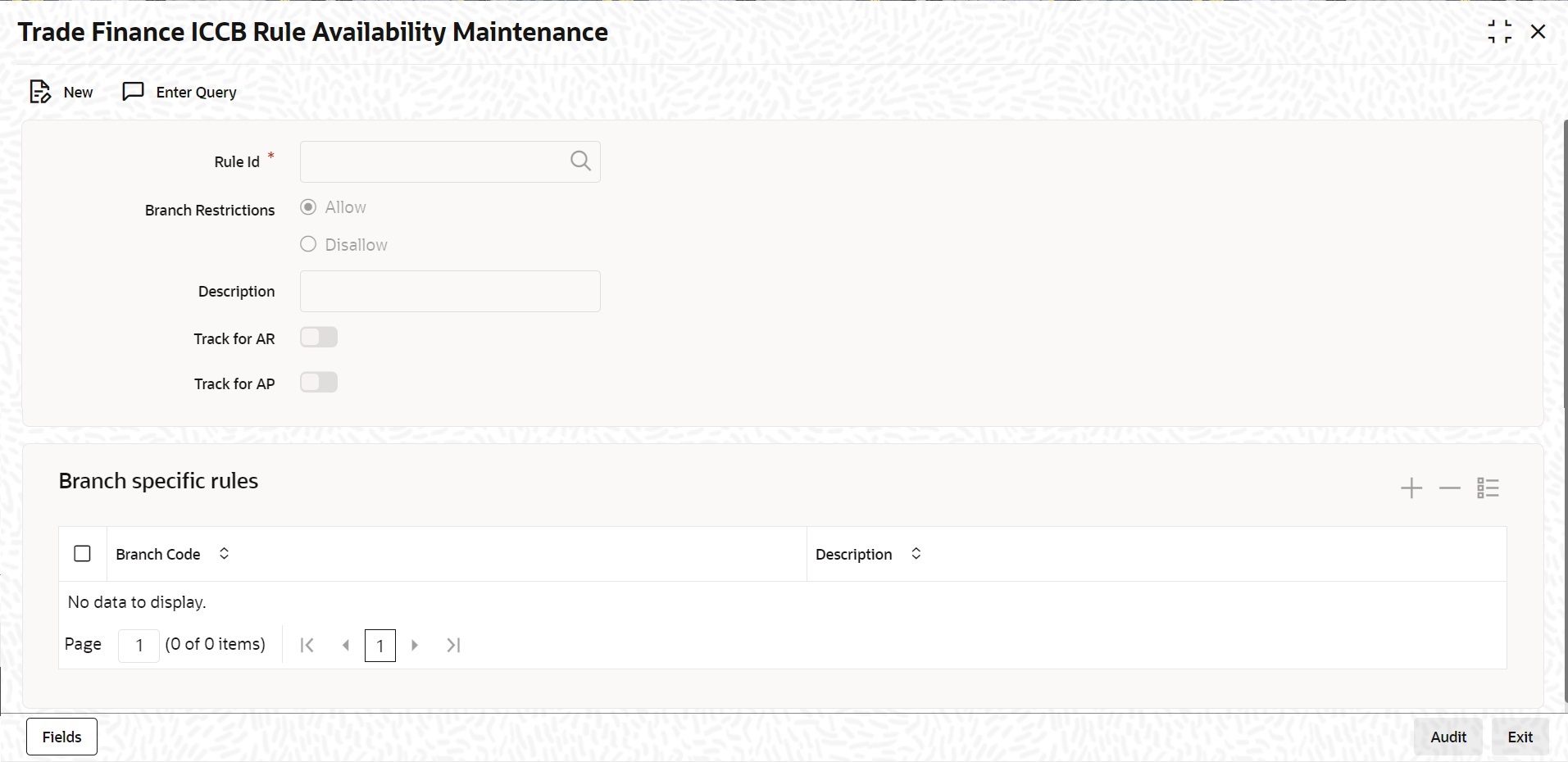2.3.1 Load ICCB Rule Availability Maintenance
This topic provides systematic instructions to load ICCB rule availability maintenance.
A brokerage rule identifies the basic nature of a brokerage component. Each brokerage rule is defined by a ten-character code, called the Rule ID. Attributes are defined for this Rule ID, which is then associated with a broker and product. When a deal is processed, the brokerage attributes defined for the Rule ID that is associated with a broker and product will be applied on the deal.
Specify User ID and Password, and login to Homepage.
Parent topic: Brokerage Rule Definition
